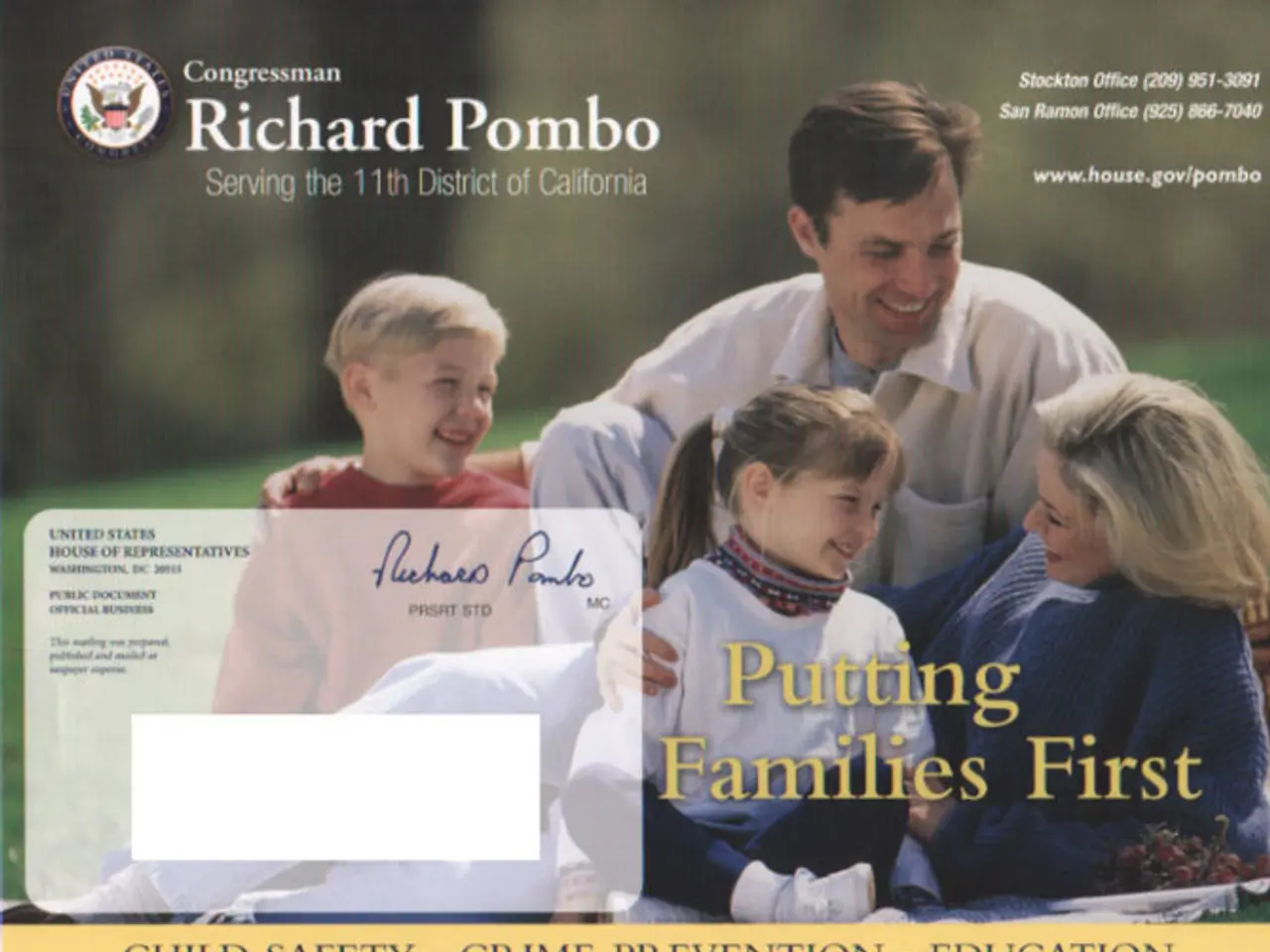FCC Chairman, Brendan Carr, Maintains Stance in Correspondence with Legislators
The Federal Communications Commission (FCC) has been embroiled in a controversy surrounding its chairman, Brendan Carr, who has been accused of improperly targeting broadcast networks and media companies. The allegations, led by the Freedom of the Press Foundation, claim that Carr's actions violate legal ethics, including dishonesty, abuse of office for political gain, and conduct prejudicial to justice [1][3][4].
The controversy stems from Carr's decision to revive long-dormant "news distortion" investigations against major networks like CBS, NBC, and ABC, as well as launching formal probes into underwriting practices at NPR and PBS member stations [2]. Critics argue that these investigations could potentially chill public broadcasting efforts.
In response to these allegations, Carr has defended his actions in letters to lawmakers. He insists that his approach represents a break from past politically-laden FCC decisions and denies accusations of targeting or weaponizing the FCC against these media companies [2]. Carr maintains that his commitment to fairness and even-handed treatment is a departure from previous years, where politics often determined FCC decisions.
The ongoing investigation into NPR, PBS, and their member stations is still ongoing, with Carr explaining that the inquiry is to determine whether their underwriting announcements "cross the line" into commercial advertising [2]. The Democratic lawmakers had pointed to Carr's investigation of Audacy's KCBS(AM) in San Jose for broadcasting the locations of undercover U.S. Immigration and Customs Enforcement agents as evidence of improper targeting [2].
The U.S. House Energy and Commerce Committee is also investigating Carr for alleged politically motivated investigations. The inquiry was made before the "claw back" of funds that led to the shuttering of the Corporation for Public Broadcasting [2].
During his May testimony before the U.S. House Appropriations Subcommittee on Financial Services and General Government, Carr highlighted the "unprecedented failure" to process Sinclair license renewals from 2021-2024 [2]. Carr also responded to an inquiry from Matsui, Mark Amodei (R-Nev.), and Andre Carson (D-Calif.) regarding the FCC's investigation into NPR, PBS, and their member stations [2].
As of April 28, the FCC had 1,426 employees, with 69 having accepted the commission's deferred resignation program and 44 new hires [2]. Carr addressed concerns from Representative Steny Hoyer (D-Md.) about the agency's "large-scale reductions" in force [2].
No public response specifically addressing these ethics complaints has been issued by Carr beyond his private letters to lawmakers as of the latest reports [1].
[1] https://www.cbsnews.com/news/fcc-chairman-brendan-carr-faces-ethics-complaints-over-alleged-partisan-bias/ [2] https://www.politico.com/news/2023/05/12/fcc-chairman-brendan-carr-defends-record-amid-partisan-attacks-00097396 [3] https://www.nbcnews.com/tech/tech-news/fcc-chairman-brendan-carr-faces-ethics-complaints-alleged-partisan-bias-n1319222 [4] https://www.washingtonpost.com/business/2023/05/12/fcc-chairman-brendan-carr-faces-ethics-complaints-alleged-partisan-bias/
- The Federal Communications Commission (FCC) is currently under scrutiny due to allegations made by the Freedom of the Press Foundation, claiming that chairman Brendan Carr's actions against media organizations and broadcast networks breach legal ethics.
- Critics question the intent behind Carr's revival of "news distortion" investigations against major networks and his inquiries into underwriting practices at NPR and PBS member stations, fearing potential suppression of public broadcasting.
- In the midst of these allegations, Carr has defended his actions, emphasizing a departure from past FCC decisions perceived as politically motivated and denying charges of targeting specific media companies.
- The ongoing investigation into NPR, PBS, and their member stations has raised concerns about potential politically motivated investigations by Carr, with the U.S. House Energy and Commerce Committee also launching an inquiry into this matter.
- Meanwhile, conversations about policy and legislation in the fields of media, technology, finance, business, banking, and insurance, as well as politics and general news are ongoing as people discuss the implications of Carr's actions on these industries.




